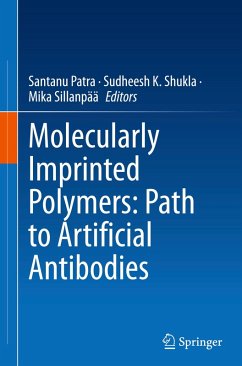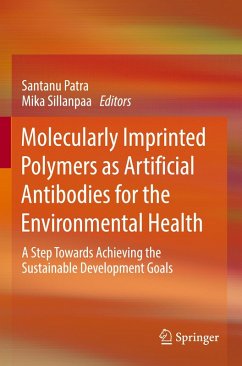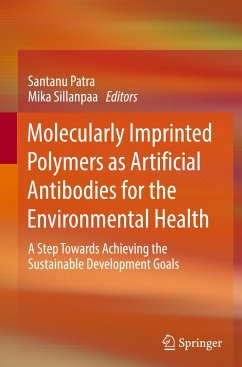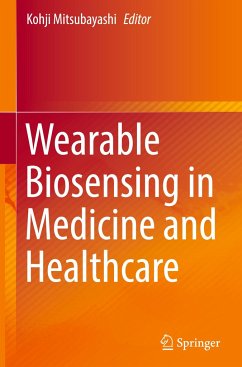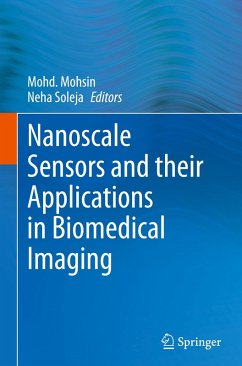
Molecularly Imprinted Polymers
Computational Studies to Advanced Applications
Herausgegeben: Altintas, Zeynep

PAYBACK Punkte
68 °P sammeln!
This book provides an overview of the latest technology and advances in the field of molecularly imprinted polymers (MIPs) and their diverse applications in healthcare diagnostics, food safety and quality, as well as environmental monitoring. Divided into 3 parts, the book offers an introduction to the basics of molecular imprinting and affinity materials, followed by an outline of the main sensor applications and the contribution of smart nanomaterials to molecular imprinting. The last part of the book compares MIP-based diagnostics technologies with antibody- and aptamer-based diagnostics, a...
This book provides an overview of the latest technology and advances in the field of molecularly imprinted polymers (MIPs) and their diverse applications in healthcare diagnostics, food safety and quality, as well as environmental monitoring. Divided into 3 parts, the book offers an introduction to the basics of molecular imprinting and affinity materials, followed by an outline of the main sensor applications and the contribution of smart nanomaterials to molecular imprinting. The last part of the book compares MIP-based diagnostics technologies with antibody- and aptamer-based diagnostics, and discusses existing and further commercial opportunities for MIPs.
Through this book, readers will get a wide range of information from basics to advanced applications in the molecular imprinting area and discover the impact of integrated approaches such as computational studies and nanotechnology on the development of imprinting techniques for biotechnological applications covering healthcare, environmental and food safety research.
With its rich content, the book is a unique contribution to the field and it holds great potential to be a reference work not only for researchers working in the field but also for the researchers who plan to design collaborative research projects to contribute to their particular field (e.g., medical scientists, medical doctors, agricultural or food engineers).
Through this book, readers will get a wide range of information from basics to advanced applications in the molecular imprinting area and discover the impact of integrated approaches such as computational studies and nanotechnology on the development of imprinting techniques for biotechnological applications covering healthcare, environmental and food safety research.
With its rich content, the book is a unique contribution to the field and it holds great potential to be a reference work not only for researchers working in the field but also for the researchers who plan to design collaborative research projects to contribute to their particular field (e.g., medical scientists, medical doctors, agricultural or food engineers).



